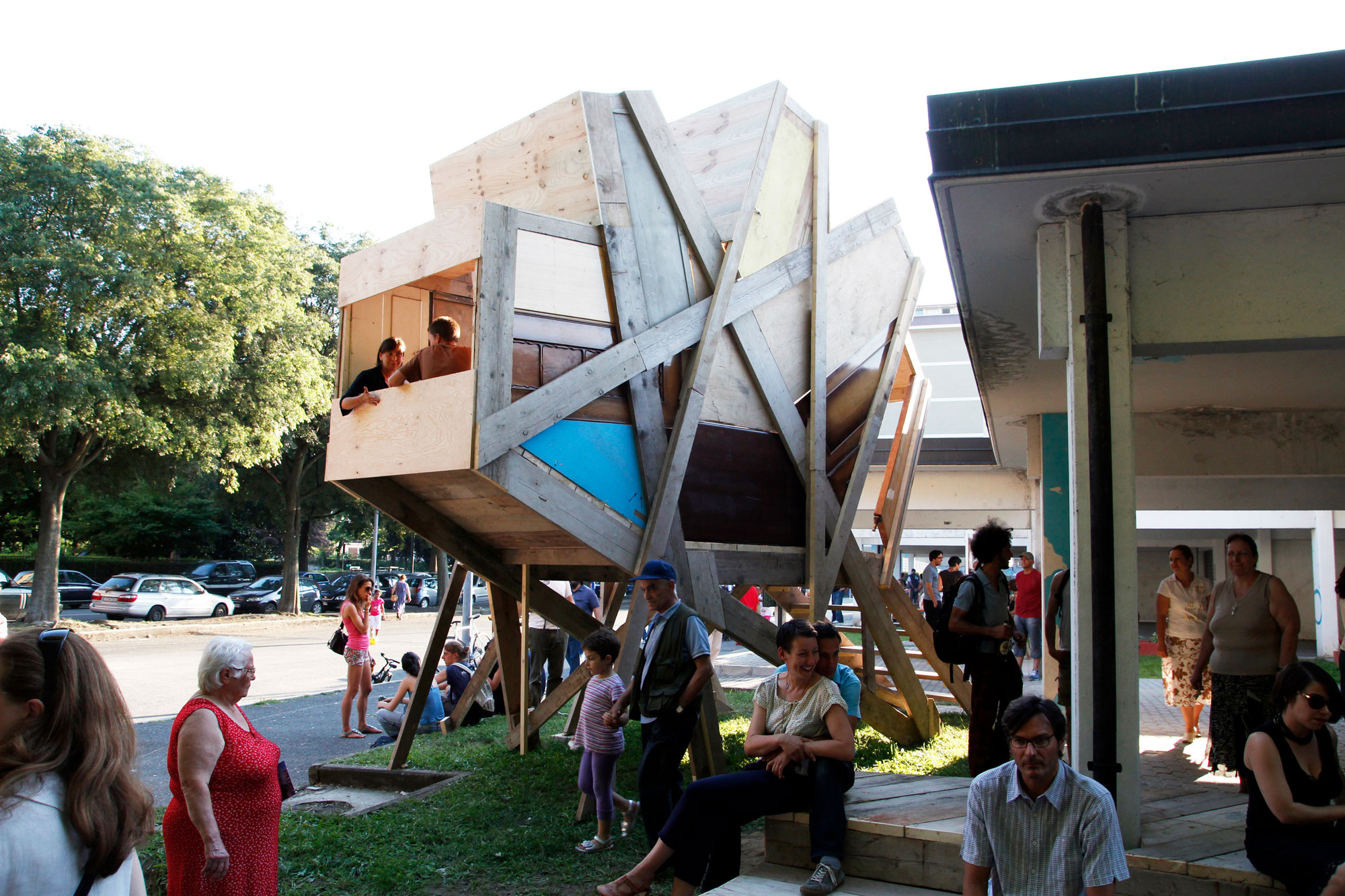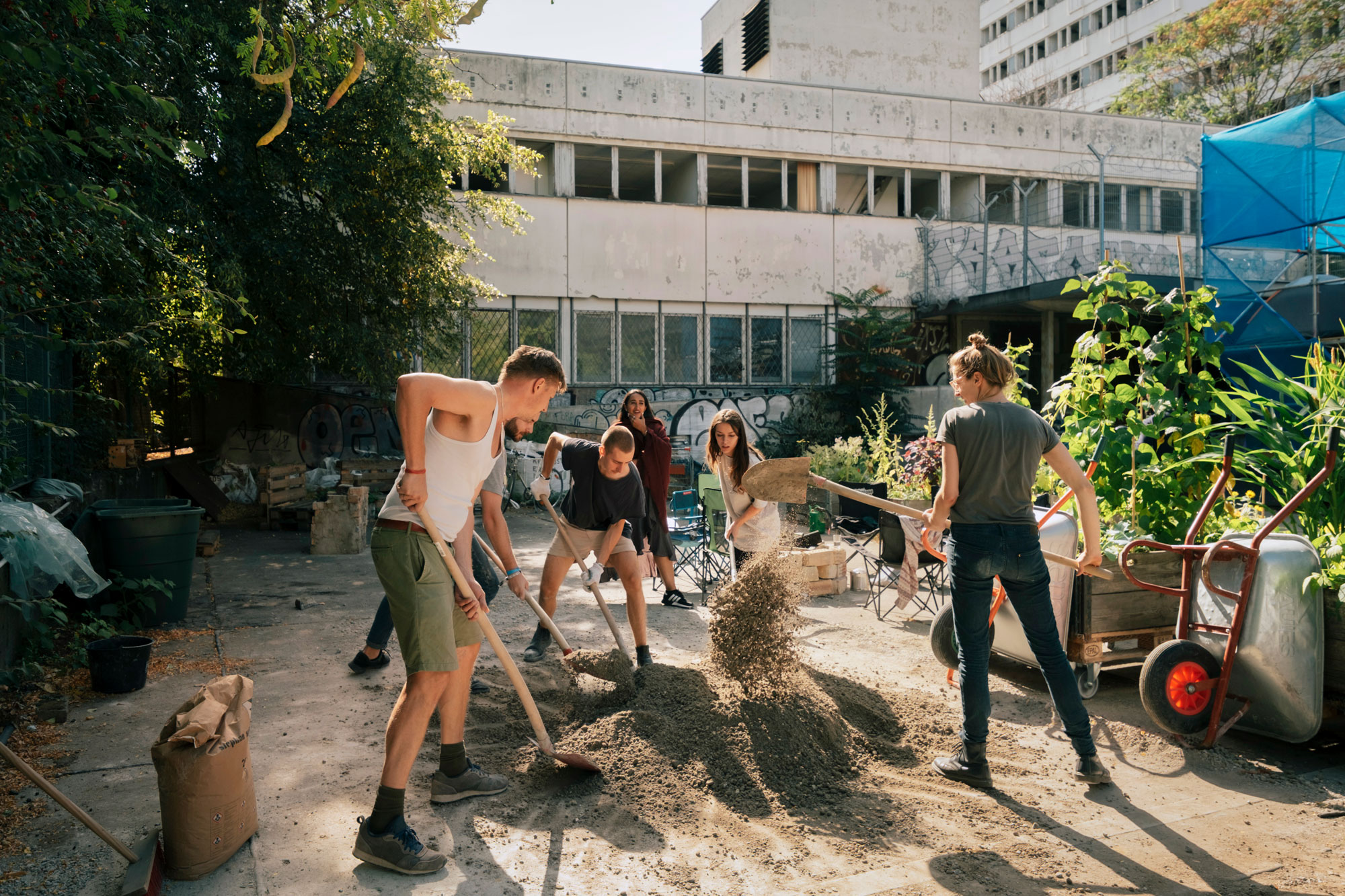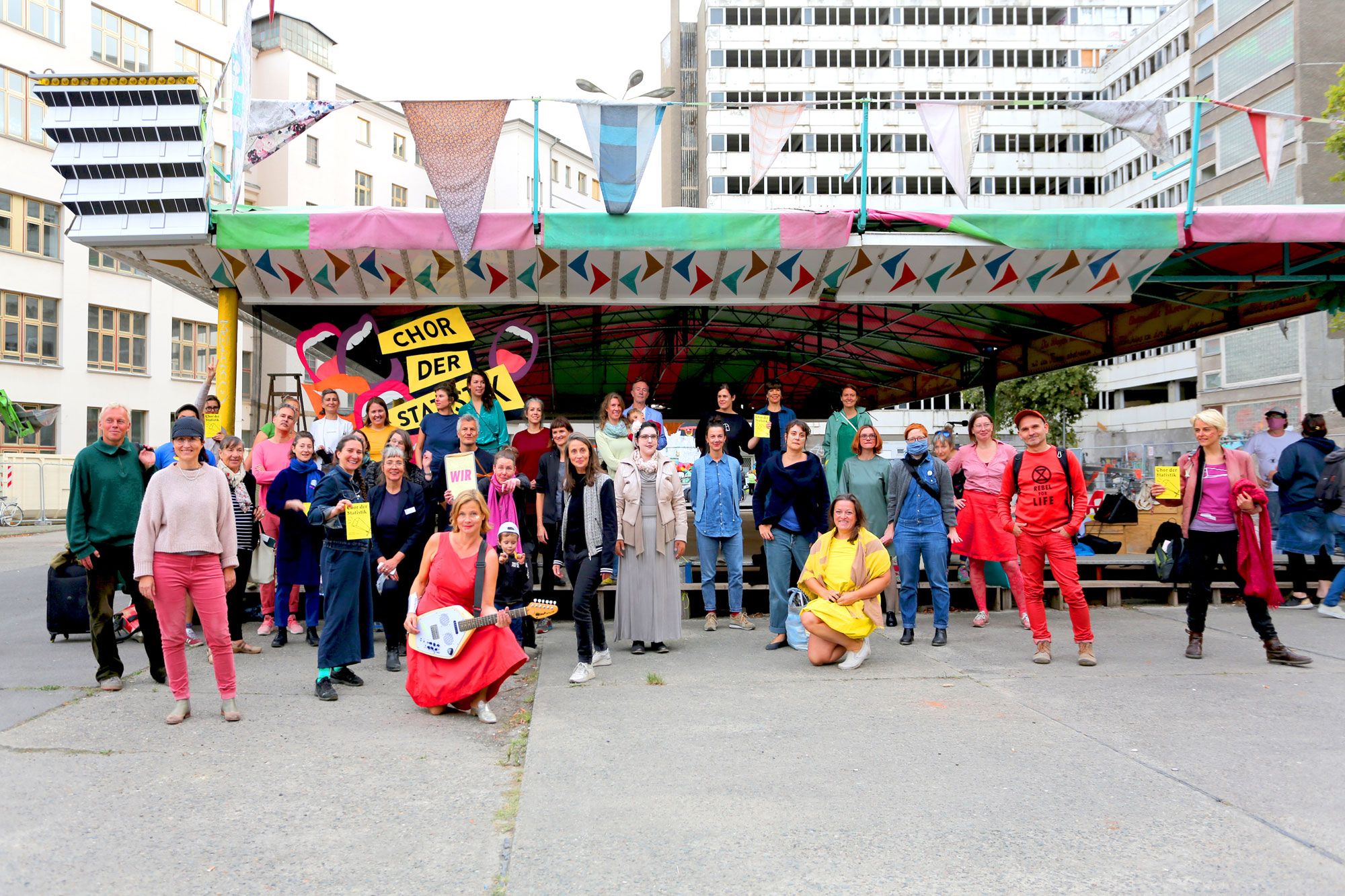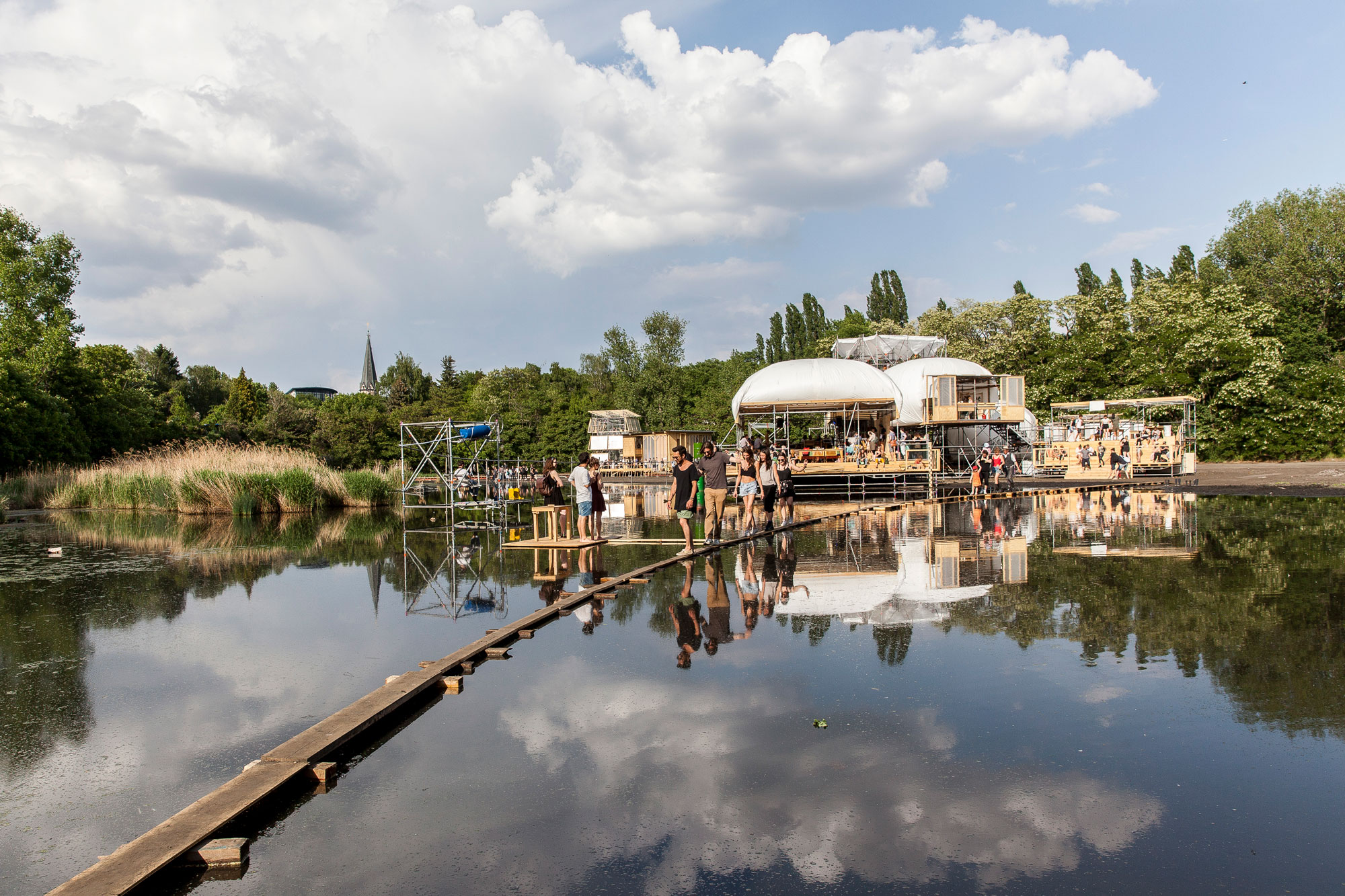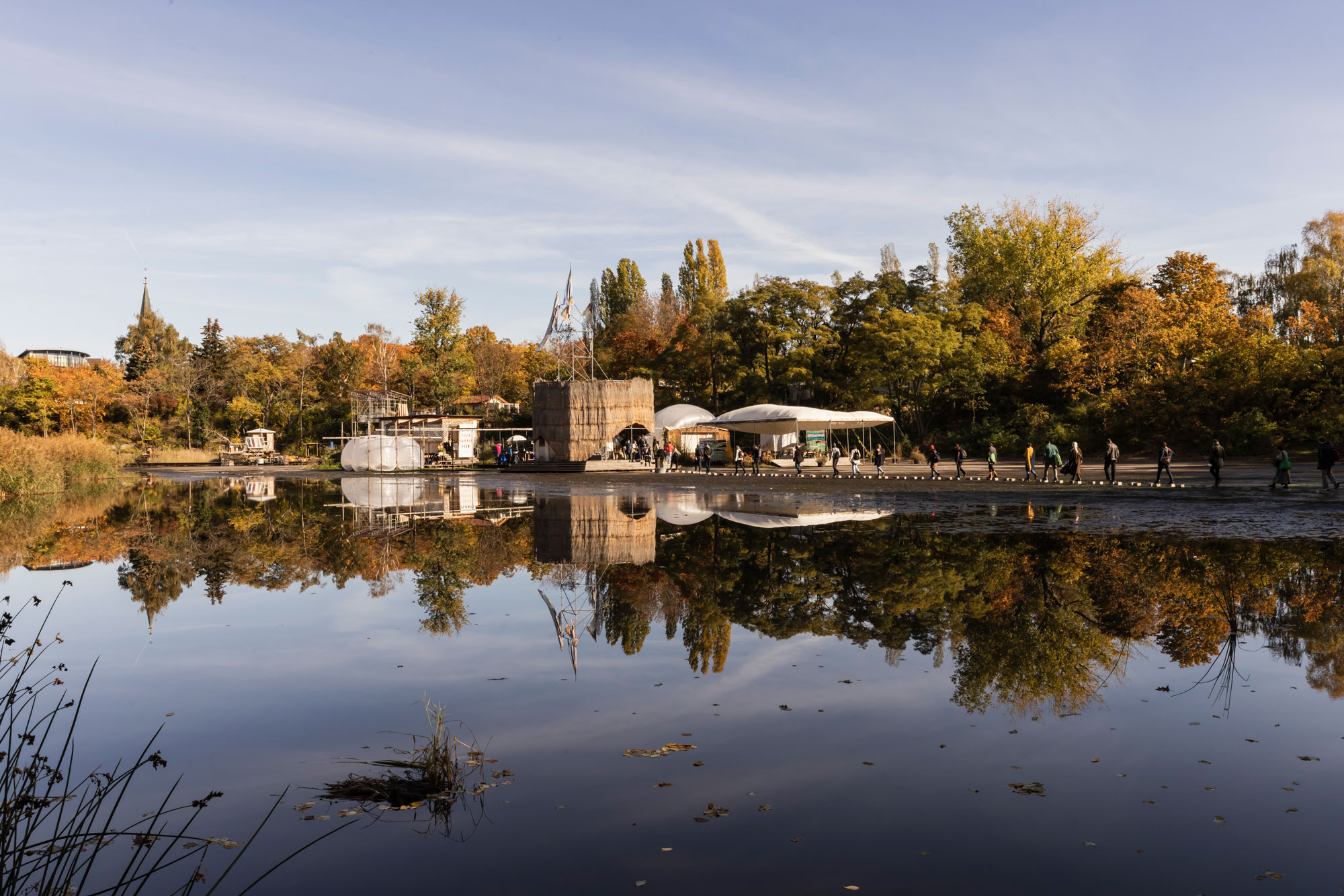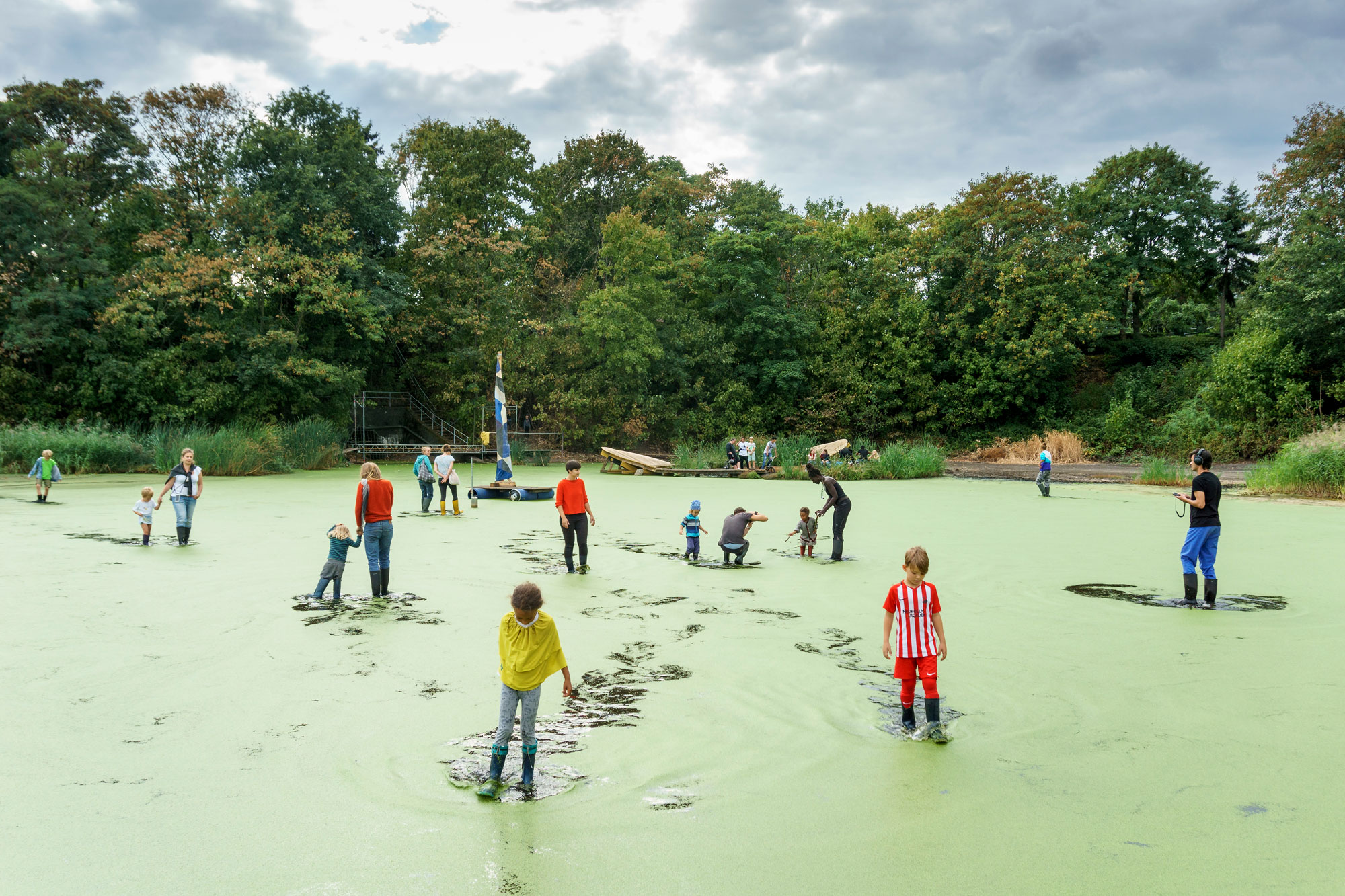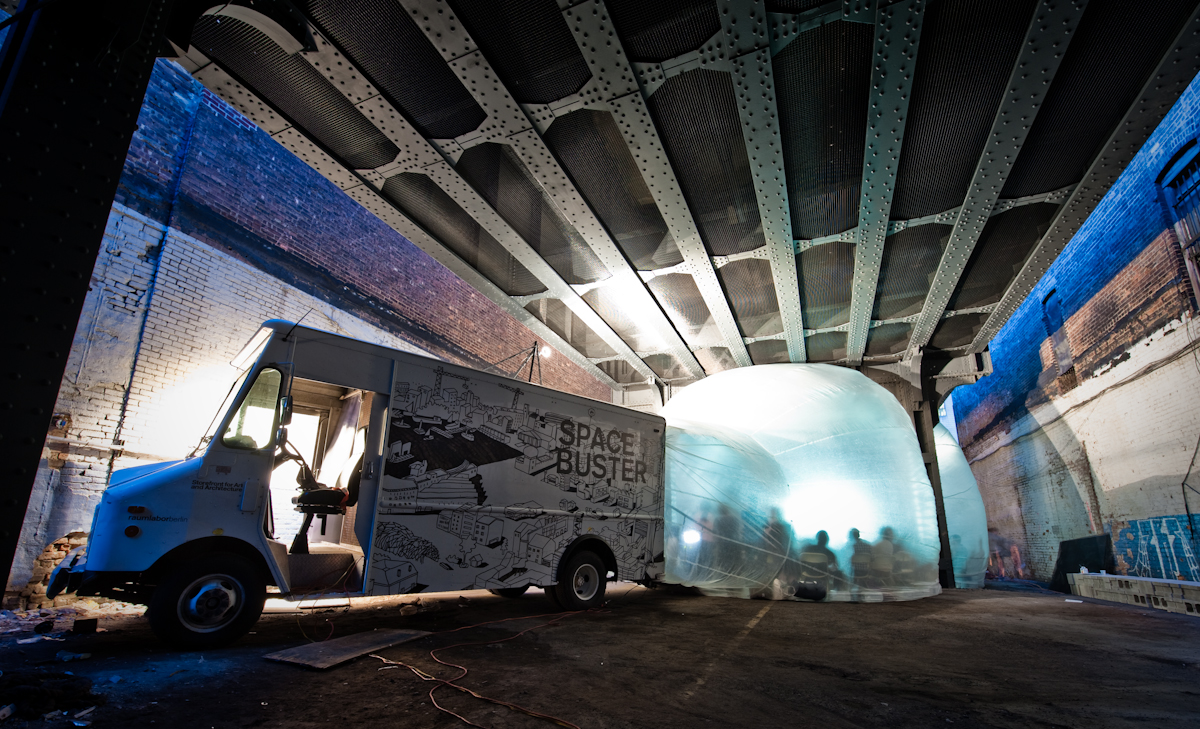raumlabor is a collaborative group of 20-30 urban practitioners that work on issues around space and society.
At their core are nine members. raumlabor creates spaces, installations and situations that explore the transformative potential of space. Their work is often action-oriented and context-specific, as they see space as co-produced in social actions.
As co-initiators, raumlabor were instrumental in the development of two sites in Berlin that are now part of the Initiative Urbane Praxis network: Haus der Statistik and Floating University.
Together with the Atelierbeauftragten für Berlin (studio representative for Berlin), raumlabor developed the study “Urbane Optionsflächen. studie zur untersuchung von arrondierungsflächen aus dem treuhandvermögen des landes berlin” (Urban Option Spaces. a study to investigate the left over urban spaces of the Berlin state’s public land trust), which is about the exploration of arrondissement and left over spaces for the implementation of innovative uses.
In its temporary spatial installations, raumlabor creates little utopias – places to experiment and test possible futures together. For raumlabor the city and public space serve as references, because they are places for the daily practice of urban and spatial activity. Public space is praxis, because a space without people is just a traffic area. raumlabor works cooperatively with actors from urban society, cultural institutions and urban planning. The special interest in transdisciplinary linkages help them discover the new potentials that are often hidden in the cracks between perspectives.
raumlabor loves to work in Berlin, and simultaneously has received international recognition through their projects in many places.
12435 Berlin / Germany
